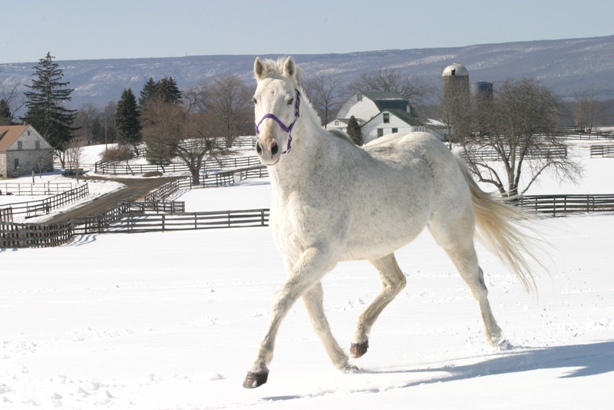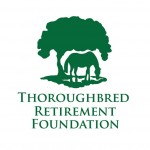
The Thoroughbred Retirement Foundation (TRF), which came under fire following a New York Times article, has had NY Attorney General charges dismissed.
The New York Attorney General’s Office announced Nov. 19 that the case against the Thoroughbred Retirement Foundation (TRF), brought after a New York Times article reported horses were starving while in the care of the charity, has been settled with the TRF.
In a settlement agreement signed by Judge Anil C. Singh, the Attorney General’s office states that after a “vigorous, arms-length negotiations” both parties agreed to settle in order to allow the TRF to continue to “fulfill its mission” to continue caretaking its horses.
In the wake of the settlement, Fantasy Lane Stables CEO and President Robert L. Hutt has been appointed to the Board of Directors of the TRF, and will help undertake a search for a new executive director.
And John Moore, current CEO and Chairman of the Board will step down from those positions, but remain an active board member until his term expires in August 2015. Diana Pikulski will also retire from the board no later than August 2015, according to the settlement agreement.
Moore expressed relief that the long legal episode was concluded, while both offering a welcome to Robert Hutt to the Board, and criticizing the lawsuit.

Some of the herd at the TRF include Momentous Drive, Puzzle Girl and Shomrins Guard, shown here at Grizzly Creek
“We are relieved to have behind us this nuisance suit,” stated Moore in a press release from the TRF. “It has been a costly and serious distraction.”
Despite defending the TRF against allegations, which were cited in a 2011 New York Times article, and alleged that the TRF was allowing horses to starve in its care, Moore maintains the TRF’s herd is in excellent shape.
“Our herd—just under 1,000 horses —remains in fine condition as we head into the winter,” says Moore, adding that he believes horses have been in good condition throughout the investigation.
While the daily responsibilities of care for the horses will go on, the day-to-day operations of the TRF will face changes as a result of the settlement:
• New Directors—The TRF will add three new members to its Board, bringing the numbers to 12, including a veterinarian appointed by the Attorney General’s office, and also reserve seats on the board for one director nominated by a “reputable animal-welfare organization” chosen by the Attorney General, and another who is an associate or member of a “national horseracing institution,” according to the settlement agreement, which stipulates such a member may arise from The Jockey Club, Thoroughbred Owners and Breeders Association or the Jockey’s Guild.
• Executive Director— The TRF Board is ordered to hold a meeting within 30 days of the appointment of a new director to appoint a Nominating Committee, comprised of new and older board members, to commence a search for a new Executive Director.
Founded in 1983, the Thoroughbred Retirement Foundation (TRF) is the largest equine rescue organization of its kind, devoted to the rescue, retirement, rehabilitation and retraining of Thoroughbred racehorses no longer able to compete on the track.
Moore says that with the cloud of the suit cleared away, the TRF will look forward to resuming its work, and plans to announce an effort to substantially grow its endowment.
Meantime, in a press release, New York Attorney General Eric T. Schneiderman stated that since the investigation into neglect was begun, the TRF has taken steps to improve its ability to carry out its charitable mission of caring for retired racehorses. “Most notably, it has halted a practice of accepting more Thoroughbred horses into its herd than it had the resources to to adequately sustain,” Schneiderman stated. “The number of the herd is now fewer than 950, a one-third reduction in the herd’s maximum size before the lawsuit was filed.”
Schneiderman states that as part of the settlement, a veterinarian will be named by the AG’s office to the TRF board, and that the governing board will be “revamped.” To read the entire AG press release, please click here. To read more of the TRF press release, please click here.


